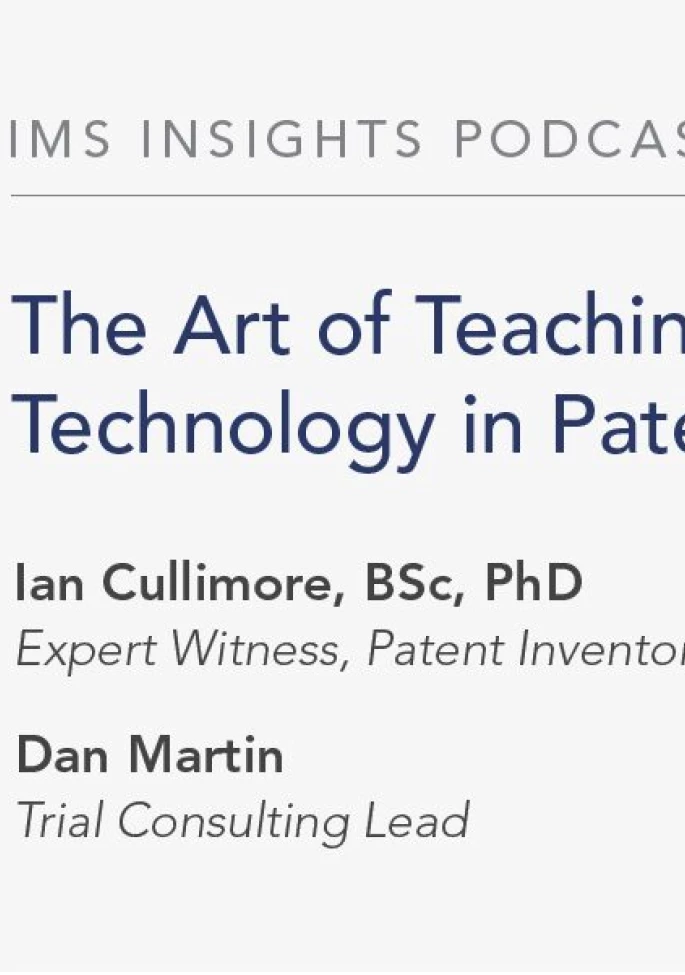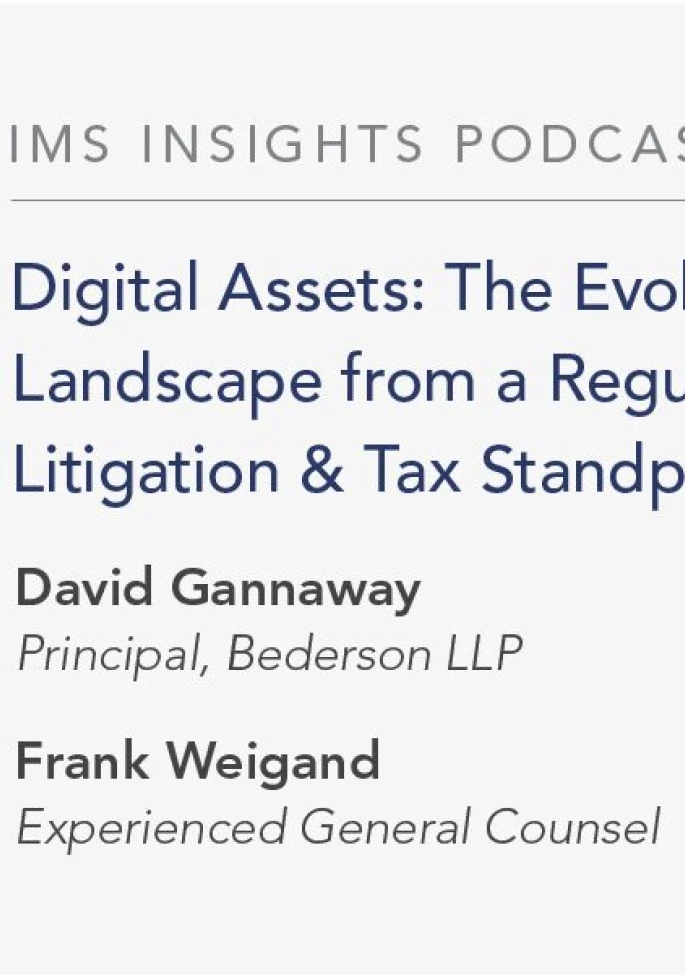In this episode of the IMS Insights Podcast, we sit down with Dr. Edwin Hernandez—an expert in our network. Dr. Hernandez discusses the growing industry of cloud computing and data sharing, as well as potential litigation roadblocks these industries may face in the future.
Teresa Barber: Data sharing and cloud computing has really slowly but very surely begun to overtake traditional data and computing practices. How would you say the advancement of cloud computing has changed industries in your eyes?
Dr. Hernandez: Well, I've seen a drastic [sic] change for everything right now. So like the business model for a company that we can see that they were ahead of the curve and they did it right was IBM and Microsoft, both companies. They both started learning that selling this box with the hardware, with the software and their hardware was not going to be the way of the future. So IBM got rid of their divisions and made laptops and other hardware devices and abandoned completely selling software packages or going to the cloud. Now with their results. IBM is going very well financially. So the companies like Microsoft or Amazon, they have adopted the same way. So the data in the cloud is going to bring many more industries, especially healthcare right now, I will say is the most archaic, that we still see a little paper circulating to the cloud and those advancements will bring more efficiencies for us to hopefully to lower healthcare healthcare costs in America.
Teresa Barber: Do you think we'll ever get rid of the fax machine?
Dr. Hernandez: I will say that this is an invention that should be removed right now. It's just totally like sending smoke signals.
Teresa Barber: Like sending a telegram?
Dr. Hernandez: Like sending a telegram, it should be obsolete by now.
Teresa Barber: That's good. So data is really kind of become the currency of today or the currency of tomorrow, if you want to be conservative. We see the growth of cryptocurrencies like Blockchain, like Bitcoin, but also blockchain and the sharing of data across platforms and new ways of sharing that data. Do you think that any of these evolutions could kind of welcome disruption, disputes or litigation?
Dr. Hernandez: Yeah, no it, it will definitely ... well, it will cause two things, right? Number one is how do you do, for example, how you deal with attorneys eyes' only documents nowadays? How do you know that privacy and secrecy of certain information that is being discoverable is shared correctly, number one. How do you verify that this information that resides in the cloud is not afterwards hackable by some individual in another country and then retrieving trade secrets or intellectual property from a corporation? Because now everything's in the cloud and it will just ... e-discovery mechanisms in our area right now, it could be key. So that could trigger a little litigation factors in terms of privacy and how do you know why this being produced, on when and who sees the production. Maybe that will require a little bit more blockchain ideas to validate who and where this information is being shared and where is it being copied, for example. That's an area where it's still cloud computing, especially processing and all the different ...
Dr. Hernandez: The main wireless communications is an area and cloud are merging. The wireless communication, the cloud is merging with television too. Then so those are big areas that used to be high on litigation for encoders, distribution mechanisms and methodologies to process video or audio that used to reside in machines. Now they reside on [sic] instances and so they will reside maybe on some cloud machine. That's a huge area where things could go like really, really wild, because even for demonstrating what's called infringement, right? It's going to be very difficult if you don't have access to a device yourself. Right? So I think that's an area that's going to be very hard to fight and to monitor as well, into any litigant that's defending or fighting a patent case.
Teresa Barber: That's interesting. And what about monopolies and the accusations of monopolies? Do you see the potential for any related claims related to data storage, cloud computing?
Dr. Hernandez: No, we see it right now, right? Like we see with Amazon, Amazon contains lots of data. They are the S3 cloud computing and storage platform. So they not only contain vendors that were used S3 as a database, but also contained database themselves. So if you are, for instance, a supermarket like Publix for instance, I know Publix removed their servers from Amazon because it turns out that Amazon now has a supermarket called Whole Foods. So why would Publix or any other chain have their data at Amazon, when potentially there could be some privacy issues like we said in the past, in the prior response. Even reflect just certain parameters, just traffic parameters.
Dr. Hernandez: When are people buying more bread? Right? It's maybe a time for Whole Foods to lower the prices of bread. Right? So those are things that are very, very key and fundamental for this type of industry. Right? So anyways, so that's a thing that will trigger a lot of litigation because I think a company that offers cloud computing services can not own, let's say a hospital, cannot be in the market of ... it's my opinion only, right? They cannot be in the market of any other potential competitor that is using the same premises, because unfortunately, for more secured information that could be, there multiple parameters, for example, traffic or indicators of use or usage laws and many things that are lesser, those are being private as well, that could be used to derive valuable information that could affect prices and market trends
Teresa Barber: And create a competitive advantage. You think about how Walmart uses data in their supply chain, their entire supply chain process. That's really interesting. It's an interesting future, or now.
Dr. Hernandez: Yeah, I know. Imagine, like right now, Amazon removed FedEx from there list of providers, because Amazon became now their own FedEx. Right? Now you see all the trucks with Amazon Prime. Then that was something that the FedEx should have anticipated in the past and tried to find ways to maintain those ways to make their supply chain more efficient as far as trade secrets or information that could not be shared with somebody like Amazon. But Amazon, with all the data they contains, maybe they didn't even need any information from FedEx. But the fact they were working with FedEx gave them a little data that they could just say, "Well, FedEx is inefficient here. It's inefficient here. It's more efficient here, because we're sending 1000 packages per day to this area and FedEx only delivers 97% on time, 3% failure." Or whatever number they have, right? They know that the customer support, they know what people are complaining about. They have all the data. So I wonder how much of this data should have been protected.






